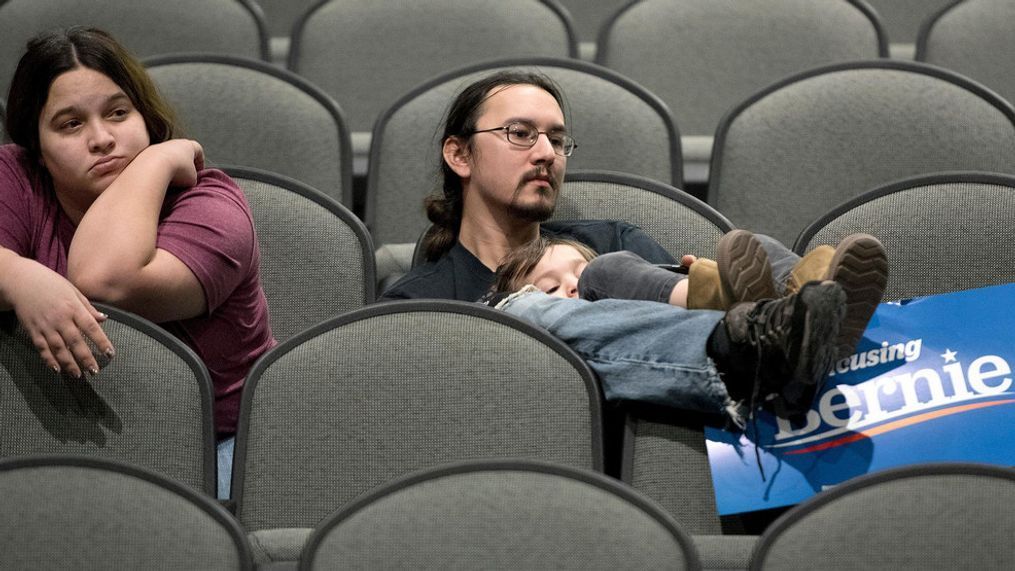Move to change nominating calendar raises questions about Dems' commitment to rural voters
WASHINGTON (TND) — The Democratic National Committee’s push to rearrange its presidential nomination calendar is rankling some parts of the party who are questioning if it is giving up on a chunk of the electorate by taking away Iowa’s first-in-the-nation status.
With the support of President Joe Biden, the party took the first steps on Friday to move South Carolina to the front of the order in 2024, followed by New Hampshire and Nevada, Georgia and then Michigan.
It would be a drastic shakeup from the party’s previous selection calendar, which saw small, predominantly white states Iowa and New Hampshire lead off the nomination process. Biden has pushed the DNC to embrace the party’s diversity in choosing its order for presidential contests. The new order, which still needs to get through several more steps in the process to be finalized, would be more favorable to Biden if he were to face a primary challenge in 2024 after he performed well in those places during the 2020 campaign.
But it has opened some criticisms about the party abandoning rural voters, a demographic that has tilted more heavily toward Republicans in recent elections. Both of the state’s Republican senators criticized Democrats for leaving their state’s voters behind.
“A total slap in the face to Iowans and rural America. Iowa Democrats should be ashamed of themselves. An incredible loss for our state,” Sen. Joni Ernst said.
Voters in rural areas have favored Republican candidates in recent elections and the shift right has grown stronger. In the midterms, CNN’s exit polling found rural voters favored GOP candidates by 29 percentage points, compared to 14 in 2018’s midterm elections. NBC exit polling also found a sizable advantage for Republicans in small cities and rural areas, with a 63-34 split in favor of the GOP.
Former President Donald Trump won Iowa’s electoral votes by comfortable margins in both of his presidential campaigns, Republicans won all four of the state’s House races in this year’s midterms and both senators are Republican.
But some political experts question if leaving Iowa behind will be a favorable decision for the Democratic party despite the recent string of statewide Republican success.
“It's not that long ago that this state, for two presidential elections, went for (former President Barack) Obama,” said Tim Hagle, a political science professor at the University of Iowa.
Republicans hold an advantage of roughly 90,000 registered voters in Iowa as of December, according to the Iowa Secretary of State’s Office. But “no party” voters, or independents, also make up about a third of the state’s electorate and are the deciding factor in statewide elections where Republicans’ lead in registered voters isn’t enough to decide races on its own.
Appealing to no party voters, who don’t always live in more urban and populated areas that tend to favor Democrats, requires the party to do more outreach. With the loss of its early primary status for Democrats, it could hurt the state party in building support.
“It's going to hurt the Iowa Democrats because having a presidential campaign coming out, even an early one that's maybe not well-funded means that you have to do a lot of organizing, and that's good for the parties to be able to get folks, to get the activists involved.” Hagle said. “People are excited about this and want to get involved and that's good for the party. You get them excited and that's why you have a fairly good turnout.”
Economic issues were the highest priorities for independent and rural voters in several public surveys taken around the midterm elections. Voters in those groups have favored Republicans to handle those issues in recent elections.
“It really does kind of boil down to the economic issues which I usually refer to and other people do too as the kitchen table issues — jobs, economy, health care — which this last time included things like inflation and gas prices and so forth,” Hagle said.
There is also a cultural divide between rural and urban areas that has shown little signs of easing. The coronavirus pandemic highlighted some of those divides with the handling of closing schools and businesses to mitigate the spread of the virus.
Whether Democrats can bridge those gaps remains to be seen after the effects of the new nomination calendar begin to be felt and voters respond.



